The 3D Ready™ Organoid Expansion Service offers researchers a huge quantity of high-quality, low-variability organoids in an assay-ready configuration.
Molecular Devices recognizes the difficulties presented by traditional manual organoid cultivation, which results in small numbers of unreliable, non-reproducible organoids. Our expertise and patent-pending bioprocess technologies transform the sector by producing batches of millions of repeatable organoids. Thanks to the 3D Ready Organoid Expansion Services, users can now generate more statistically relevant and reliable data from repeat assays or high-throughput screens.
Custom organoid expansion: Scale up the research with confidence
The unique and personalized organoid expansion service enables users to scale up their own organoid lines to meet their own research needs. Users can now run large-scale screens using millions of organoids, allowing for strong statistical analysis. This commitment to supplying uniform and reproducible organoid batches ensures accurate results, allowing users to screen thousands of compounds with confidence while maintaining research integrity.
Reproducible organoids: Unrivaled quality and standardization
Using an innovative industrial bioprocess, Molecular Devices creates enormous amounts of organoids of unmatched quality. Each batch goes through a rigorous quality assurance process to ensure that it meets the demanding criteria. Molecular Devices assures consistency both within and between batches, ensuring reproducibility and standardization. If necessary, Molecular Devices also offers customizable quality control methods to match the individual needs, providing users complete control over the quality of the organoids.
Assay-ready organoids: Streamlined workflow, accelerated research
Say goodbye to the headache of organoid growth with assay-ready organoids derived from the user's own organoid lines. These ready-to-use consumables can be easily stored in the lab's freezer until they are needed. By removing the time-consuming chore of organoid culture, users can improve lab productivity and devote more time to study. The technology streamlines the workflow, allowing users to focus on scientific research and speed up their discoveries.
Discover how our Organoid Expansion Service can help you obtain more patient-relevant results during drug development. Video Credit: Molecular Devices UK Ltd
Features
- Assay-ready convenience
- The organoids are conveniently packaged in frozen vials, ready for instant use whenever one requires them
- Scalable production
- With the potential to generate over 10 million reproducible organoids, the technique enables high-throughput and repeat experiments, allowing for efficient and reliable research.
- Reproducible models
- By reducing variability and delivering consistent batch-to-batch results, organoids improve data quality, allowing users to acquire reliable and reproducible study results
- Outsourced expertise
- Save time and money by entrusting organoid production to a team of professionals who offer high-quality products while freeing up important in-house resources
- Stringent quality control
- The thorough and configurable quality control process guarantees that the organoids continuously satisfy the highest requirements, resulting in accurate and reliable data for research.
- Customized solutions
- Customized expansion projects, which are tailored to individual requirements, enable users to scale up their own organoid lines while maintaining the integrity of their unique research goals.
From vision to reality: A tailored organoid expansion experience
Molecular Devices works closely with users to obtain a thorough grasp of their individual needs. Their purpose is to help users successfully expand their own organoid lines, tailoring them to their unique needs and aims.
They have a solid track record of aiding pharmaceutical enterprises, biotechnology companies, and academic institutions by growing their organoid lines. Their competence lies in supplying high-quality, standardized organoids that meet the rigorous needs of the life science industry.

Image Credit: Molecular Devices UK Ltd
- Project Scoping: The professionals have in-depth discussions with users to grasp the project's requirements, such as suitability, scalability, quality control, and timing. Molecular Devices customizes the method to satisfy individual requirements.
- Pre-Expansion: Molecular Devices determines the settings relevant to the organoid line within the bioreactor, ensuring the best circumstances for expansion.
- Bioreactor-Based Expansion: Molecular Devices expands the organoids using a custom bioreactor system. The collected organoids are meticulously counted, sized, and cryopreserved in vials for later use.
- Quality Control Testing: Thawed vials go through extensive quality control testing. This involves evaluating post-thaw recovery, microbial testing, and other customized quality control techniques, including medication validation and STR analysis.
- Reproducible Batches: Each batch can include more than 10 million organoids, ready to be thawed, plated, and tested as needed. This ensures continuous and dependable access to organoids for research purposes.
Technology
Organoid expansion process – Efficient, reproducible, scalable
Quality-controlled organoids are produced at scale for high-throughput screening, utilizing proprietary bioreactor and patent-pending bioprocess technology to produce efficient, reproducible, and scalable PDOs. These can be used in a variety of applications, including drug discovery and organ-on-a-chip technologies.
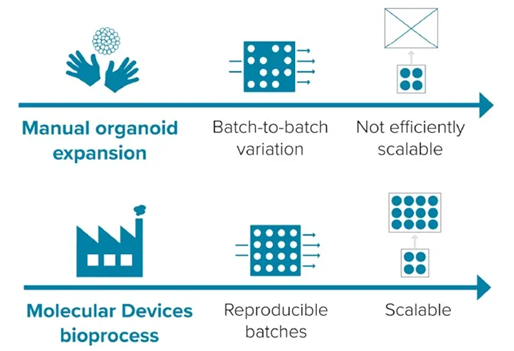
Image Credit: Molecular Devices UK Ltd
Until recently, organoids could only be created and extended manually. This technically difficult, time-consuming, and labor-intensive method produces many inconsistently sized organoids, restricting their potential for high-throughput applications and widespread use in large pharma and biotech.
This 'disruptive' Molecular Devices bioprocess, now in its second generation, has resulted in a considerable increase in standardized PDO volume output over manual procedures. Improved process control, including inline sensors and real-time monitoring, ensures accurate culture conditions for large, repeatable batches of standardized organoids.
This is a substantial improvement over previous manual PDO culture approaches, allowing organoids to be employed in high-throughput experiments sooner in the drug development process.

Image Credit: Molecular Devices UK Ltd
Applications
Application for organoid research
- Organoid Innovation Center
- Organoids
- Patient-derived organoids (Tumoroids)
- Pulmonary (Lung) Organoids
- Stem Cell Research
- Toxicology
- 3D Brain (Cerebral, Neural) Organoids
- Disease Modeling
- Drug Discovery & Development
- Intestinal Organoids
- Oncology - Cancer Research
3D Brain (cerebral, neural) organoids
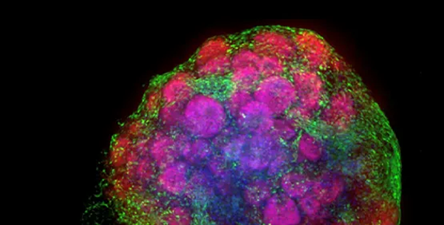
Image Credit: Molecular Devices UK Ltd
Brain organoids are 3D tissue models depicting one or more brain areas. They can overcome the limitations of traditional post-mortem and animal brain models to generate clinically useful results.
Cerebral organoids have enormous promise for studying brain development and neuronal disorders. They can also be used to study genetic abnormalities and the impact of chemicals. Nonetheless, capturing the distinctness of the human brain necessitates functional assays and high-content imaging techniques.
Disease modeling
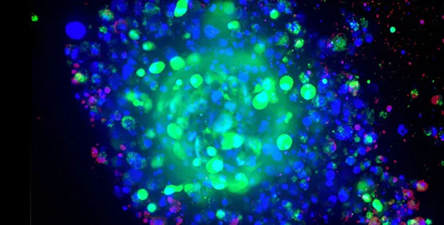
Image Credit: Molecular Devices UK Ltd
Disease model systems vary in complexity and size, from simple 2D cell cultures to sophisticated model organisms. While model organisms provide in vivo context, they are frequently expensive and may not accurately reflect human biology.
While classic 2D cell culture techniques have been utilized for many years, they are limited in their ability to reflect the complex three-dimensional structure and cellular interactions in tissues. As a result, 3D cell cultures have become a popular model system for disease modeling.
Drug discovery and development
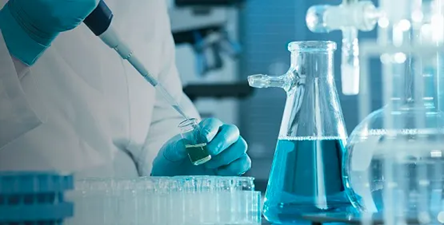
Image Credit: Molecular Devices UK Ltd
Nine drugs fail for every one that succeeds. This worrisome failure rate can be attributed to a dependence on 2D cell cultures that do not properly resemble complicated human biology, resulting in erroneous projections of a medicine's potential and longer drug development timetables.
- Evaluating viability and real-time apoptosis/necrosis in an in vitro model of malignant glioma
- Using microplate assays in cancer research to simplify high-throughput drug screening
- Cell-based measurement of ERK1/2 phosphorylation with THUNDER TR-FRET assay
Intestinal organoids
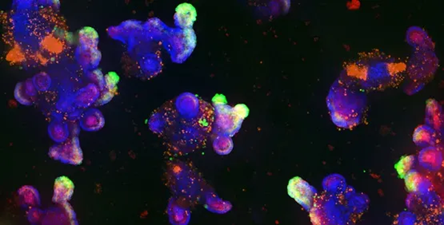
Image Credit: Molecular Devices UK Ltd
Intestinal organoids are 3D tissue models that mimic features in the intestinal lumen and the surrounding epithelium.
Oncology - Cancer research
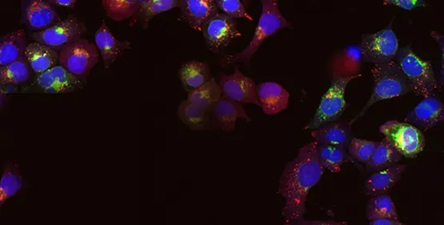
Image Credit: Molecular Devices UK Ltd
Cancer researchers require tools that will allow them to more easily analyze the complex and sometimes poorly understood interactions between malignant cells and their environment, as well as discover potential treatment targets. Learn about cancer research apparatus and software, which frequently use biologically relevant 3D cellular models such as spheroids, organoids, and organ-on-a-chip systems to recreate the in vivo environment of a tumor or organ.
Organoid Innovation Center
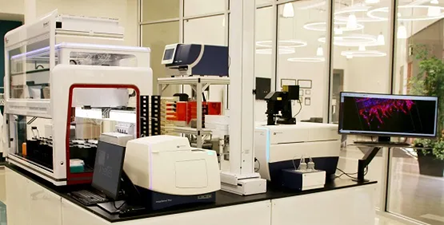
Image Credit: Molecular Devices UK Ltd
The new Organoid Innovation Center at Molecular Devices combines cutting-edge technologies with unique 3D biology methodologies to address critical issues in scaling complicated 3D biology.
The collaborative area invites clients and researchers into the lab to test automated operations for organoid growing and screening, guided by in-house scientists.
Organoids
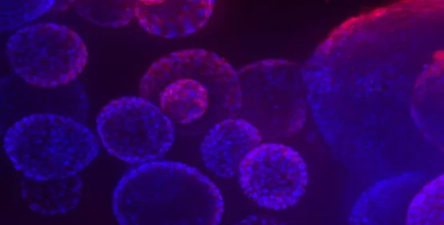
Image Credit: Molecular Devices UK Ltd
Organoids are three-dimensional (3D) multicellular microtissues intended to accurately resemble the intricate structure and functionality of human organs. They are often made up of a co-culture of cells with a high order of self-assembly, which allows for a more accurate portrayal of complicated in vivo cell responses and interactions than ordinary 2D cell cultures.
- Intestinal Organoids
- Patient-derived organoids (Tumoroids)
- Pulmonary (Lung) Organoids
- Brain Organoids
- Breast Cancer Tumoroids
- Cardiac Organoids
- Colorectal Cancer (CRC) Organoids
Patient-derived organoids (Tumoroids)
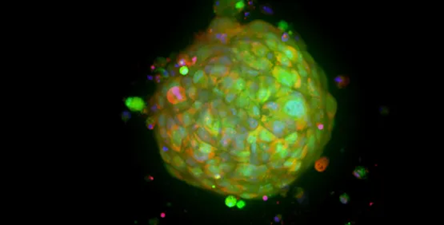
Image Credit: Molecular Devices UK Ltd
Patient-derived tumor organoids, also known as tumoroids, are tumor cell cultures obtained from individual patients. Patient-derived organoids (PDOs) are created from tumor biopsies or surgical procedures and can be used as models to study patient-specific medication responses and cancer cell proliferation.
Digested tumor fragments and cells taken from patient-derived tumors have cancer stem cell (CSC)-like properties and can be grown over numerous passages to produce huge numbers of organoids with the molecular characteristics of the original tumor.
Pulmonary (Lung) organoids
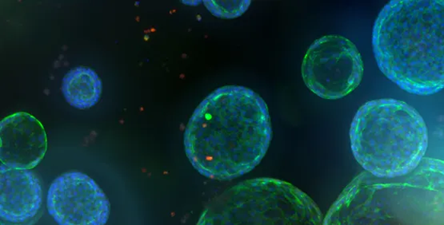
Image Credit: Molecular Devices UK Ltd
Lung organoid cultures are 3D microtissue models that mimic the morphology and function of the airway, including mucus secretion, ciliary beating, and regeneration. This biological significance allows for the investigation of repair/regeneration mechanisms in lung injury and phenotypic changes in pulmonary disorders. Lung organoids can also be used to assess toxicity or conduct drug tests.
Stem cell research
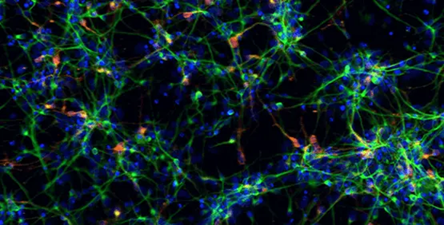
Image Credit: Molecular Devices UK Ltd
Pluripotent stem cells can be employed in developmental biology research, developed to produce organ-specific cells, and used in live or fixed cell-based tests on slides or in multi-well plates. The ImageXpress system is useful at every step of the stem cell researcher's process, from tracking differentiation to quality control to testing the functionality of specific cell types.
Toxicology
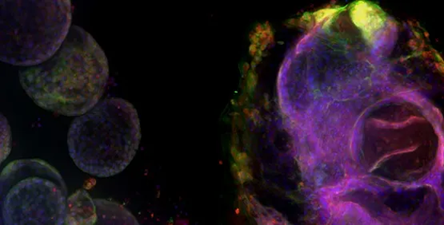
Image Credit: Molecular Devices UK Ltd
The study of harmful consequences that chemicals, whether natural or man-made, have on living things is known as toxicology. Concern over this issue is developing in the modern world due to the increased exposure to chemicals in both the environment and the things people use.